
Animal Health Diagnostic Center
Pet HospitalNew YorkIthacaFarrier Road
14853, 240 Farrier Rd, Ithaca, NY 14850, USA
4.0
Submitted blood work for phpt being as Cornell is the ONLY LAB who runs this test. Blood was delivered at 5.09 am , I got a call stating they can't do it because a decision was made TODAY that they are only doing labs for another test at this time. NOWHERE in their website does it say this.Cost $78 to ship and $25 plus $53.50 for vet and blood draw So I'm supposed to say oh ok sure and eat $200 out of pocket expenses because a decision was made TODAY to not do the test. I don't think that's right especially since this lab has not released the test protocol to any other lab
-
Overview
- (607) 253-3900
- ahdc.vet.cornell.edu
Hours
Welcome to Animal Health Diagnostic Center
The Animal Health Diagnostic Center (AHDC) at Cornell University, located at 240 Farrier Rd, Ithaca, NY 14850, USA, is far more than a typical "Pet Hospital." It stands as a world-renowned, state-of-the-art diagnostic laboratory and the official New York State Veterinary Diagnostic Laboratory (NYSVDL). Integrated within Cornell University's College of Veterinary Medicine, the AHDC serves a critical role in animal health, public health, and agricultural well-being, providing unparalleled diagnostic services to veterinarians, livestock producers, pet owners, and government agencies across the nation and even internationally.
The environment of the AHDC is that of a highly specialized scientific facility, equipped with cutting-edge technology and staffed by an extensive team of veterinary diagnostic experts, including faculty, fellows, residents, interns, and support personnel. Opened in 2010, the 126,000-square-foot facility consolidated operations previously spread across multiple locations, housing numerous Biosafety Level 2 (BSL-2) and BSL-3 laboratories, a necropsy facility capable of accommodating large animals, and sophisticated diagnostic suites. This purpose-built infrastructure ensures the highest standards of safety, accuracy, and efficiency in diagnostic testing. The facility is continuously expanding, with recent capital funding of $19.5 million from New York State to further grow its capacity to handle an increasing caseload of hundreds of thousands of tests annually. While it's not a clinic for direct patient appointments in the traditional sense, its environment is optimized for the rigorous demands of diagnostic science, ensuring precise and reliable results crucial for animal care decisions.
The services offered by the Animal Health Diagnostic Center are incredibly comprehensive, encompassing over 600 different tests across a multitude of disciplines, catering to virtually every animal species – from companion animals like dogs, cats, and exotics, to livestock (bovids, equids, ovines, porcines, caprine, cervids, camelids), poultry, wildlife, and even marine mammals. Their diagnostic capabilities are organized into numerous specialized laboratories, including:
- Anatomic Pathology: Providing necropsy and histopathology services for detailed post-mortem examinations and tissue analysis.
- Bacteriology & Mycology: Identifying bacterial and fungal infections.
- Clinical Pathology: Conducting hematology, hemostasis, cytology, and endocrinology testing for blood, fluid, and cell analysis.
- Comparative Coagulation: Specializing in blood clotting disorders.
- Endocrinology: Testing for hormone-related conditions.
- Molecular Diagnostics: Utilizing advanced techniques like high-throughput PCR and whole genome sequencing for pathogen identification, genetic disease detection, and outbreak investigations.
- Parasitology: Diagnosing parasitic infections.
- Serology & Immunology: Detecting antibodies and immune responses to various diseases.
- Toxicology: Identifying poisons and harmful substances.
- Virology: Diagnosing viral infections, including emerging threats like avian influenza and even human pathogens during public health emergencies (as demonstrated during the COVID-19 pandemic).
- Wildlife Health: Dedicated diagnostics for wildlife populations.
Beyond individual tests, the AHDC offers diagnostic plans and panels, which are curated sets of tests designed to provide a comprehensive diagnostic strategy for specific conditions or disease surveillance. They also offer STAT testing for urgent cases. A key service is their Veterinary Support Services (VSS) team, comprised of experienced veterinarians available daily to assist AHDC clients with test selection, interpretation of results, and guidance on disease prevention, surveillance, and control. This consultative service is invaluable for practitioners worldwide who rely on AHDC's expertise.
The features that distinguish the Animal Health Diagnostic Center are its unparalleled breadth of testing capabilities, its role as a state and national resource, and its commitment to research and education. As the official New York State Veterinary Diagnostic Laboratory, it performs regulatory testing for state and federal agencies and is a Level 1 member of the National Animal Health Laboratory Network, playing a critical role in surveillance for important domestic and transboundary diseases. They also partner with the FDA for surveillance of animal feeds and drugs. The AHDC's integration into Cornell's College of Veterinary Medicine means it is supported by a strong commitment to basic research, constantly identifying emerging threats and advancing the understanding of disease processes. The center processed over 300,000 submissions in a recent year, generating millions of tests from veterinary professionals across the world, showcasing its immense capacity and global reach. Their faculty are recognized experts in their fields, contributing to scientific literature and providing invaluable resources to the veterinary community through testing guidelines and educational tools like eClinPath.
However, it is important to acknowledge that as a high-volume, state-level diagnostic laboratory, the AHDC operates differently from a direct-to-consumer "Pet Hospital." The primary clients are veterinarians who submit samples for diagnosis. This means direct client interaction regarding test protocols and unexpected changes can sometimes be a point of friction, as illustrated by one of the provided reviews. The review highlights a situation where a specific test was suddenly unavailable, leading to significant financial and logistical challenges for the pet owner. This underscores that while the scientific and diagnostic quality of the AHDC is gold-standard, direct communication and responsiveness to individual client situations, especially for tests that are exclusively run by them, may sometimes present challenges. It is crucial for referring veterinarians to stay updated on AHDC's current testing availability and protocols to manage client expectations effectively. Despite such isolated incidents, the overall consensus from the broader veterinary community is that AHDC provides invaluable, high-quality diagnostic services.
Promotional information for the Animal Health Diagnostic Center emphasizes its critical role in animal health surveillance, its comprehensive testing capabilities, and its status as a leading academic and diagnostic institution. They highlight their partnerships with state and federal agencies, their involvement in programs like the NYS Cattle Health Assurance Program and Quality Milk Production Services, and their significant contributions to public health, as demonstrated by their role in COVID-19 testing. While they don't engage in direct consumer advertising like a local pet clinic, their reputation within the veterinary and agricultural communities, bolstered by their academic affiliation with Cornell, serves as their primary promotional tool. They offer detailed online resources, including searchable test lists, diagnostic plans, and contact information for their Veterinary Support Services, ensuring that veterinarians can easily access the information and assistance they need. The recent $19.5 million funding also serves as a strong testament to their perceived value and ongoing growth, reinforcing their position as a cornerstone of animal health diagnostics in New York State and beyond.
Animal Health Diagnostic Center Services
Veterinary Care
- Animal Practice
- Blood Collection
- Cattle Health
- Diagnostic Center Testing
- Diagnostic Evaluations
- Diagnostic Investigation
- Disease Control
- Disease Tests
- Emergency And Critical Care
- Emergency Treatment
- Emergency Veterinary Service
- Herd Health Plan
- Intensive Care
- Laboratory Testing
- Medicine Service
- Order Tests
- Primary Care
- Regenerative Therapies
- Regular Testing
- Routine Maintenance
- Shipping Services
- Soft Tissue Surgery
- Specialty Care
- Urine Specimen
- Vet Consult
- Veterinary Consultation
Animal Health Diagnostic Center Details
Accessibility
- Wheelchair-accessible car park
- Wheelchair-accessible entrance
- Wheelchair-accessible toilet
Amenities
- Toilet
Animal Health Diagnostic Center Photos
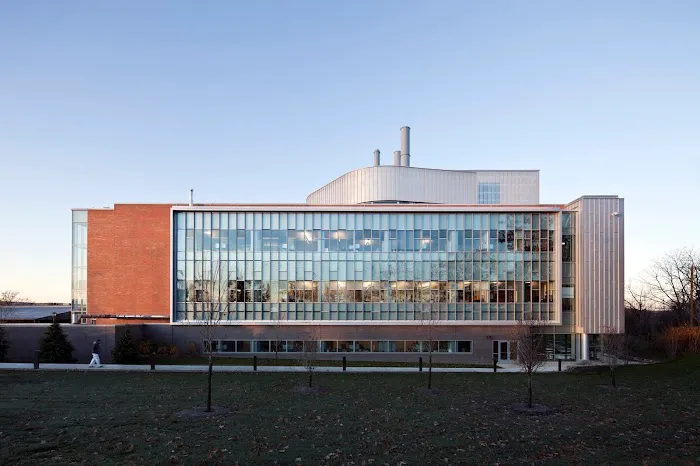
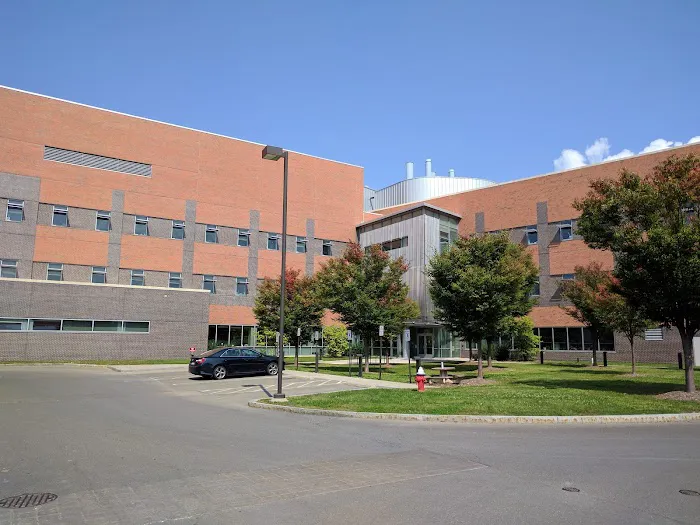
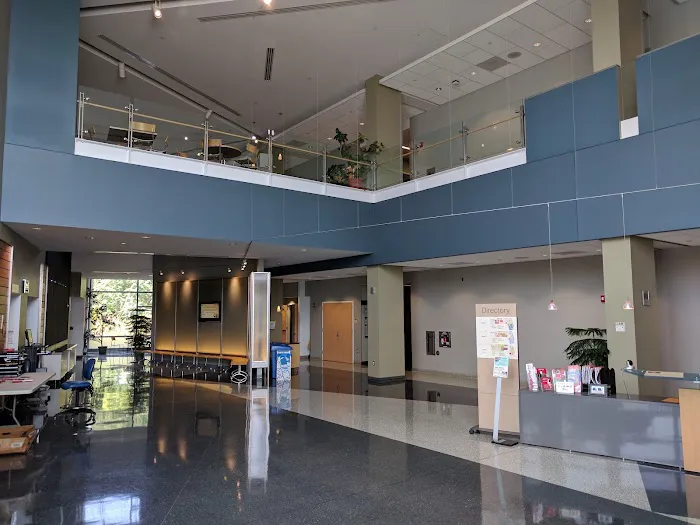
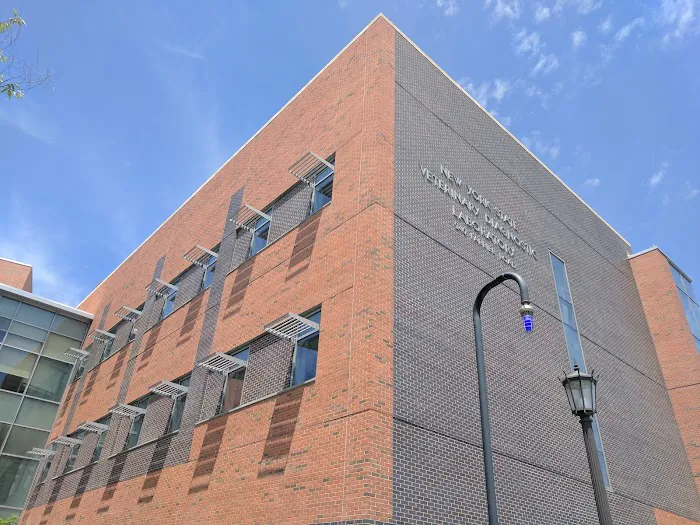
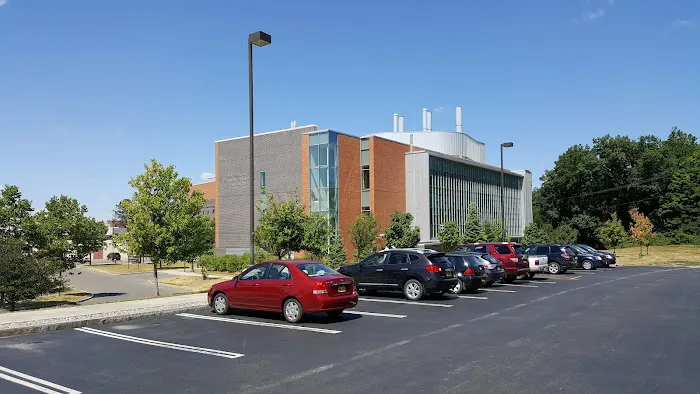
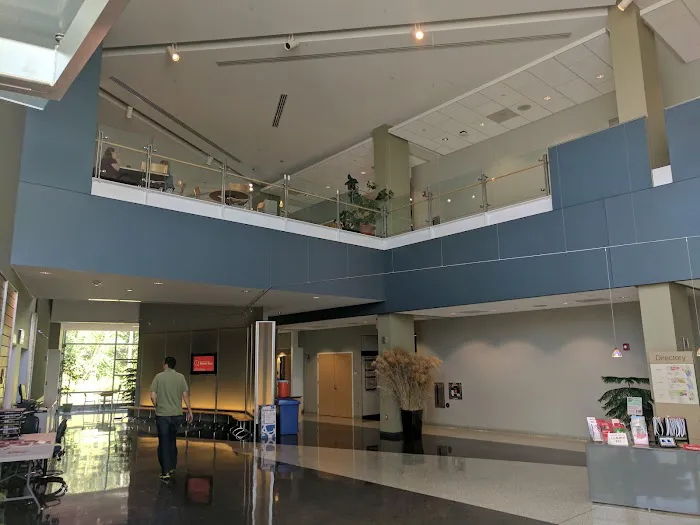
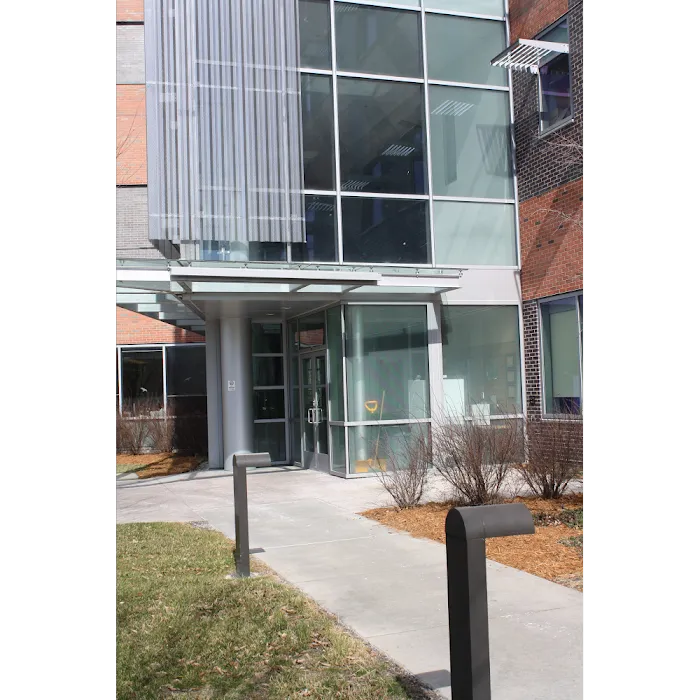
Animal Health Diagnostic Center Location
14853, 240 Farrier Rd, Ithaca, NY 14850, USA
Reviews
Submitted blood work for phpt being as Cornell is the ONLY LAB who runs this test. Blood was delivered at 5.09 am , I got a call stating they can't do it because a decision was made TODAY that they are only doing labs for another test at this time. NOWHERE in their website does it say this.Cost $78 to ship and $25 plus $53.50 for vet and blood draw So I'm supposed to say oh ok sure and eat $200 out of pocket expenses because a decision was made TODAY to not do the test. I don't think that's right especially since this lab has not released the test protocol to any other lab
Jul 24, 2024 · Cyndi ClingermanJonie was extremely polite and helpful at the end of the day. It was a pleasure speaking with her today.
Jan 18, 2024 · Lexy MclayKim Ramm is a very uninformed person to deal with veterinarian populous. She is very niave. She makes the person's working in the AHDC much harder for her ignorance. A disgrace for sure!!!
Aug 17, 2019 · awkward _cactusThis is a world class and world serving diagnostic laboratory. Enough said.
Jul 20, 2021 · Dawn CornwallVery nice facility with excellent staff and services.
Mar 09, 2019 · Isabella DiFranzoPet Hospital
 Cornell Small Animal Community Practice
Cornell Small Animal Community Practice
968 Campus Rd, Ithaca, NY 14853, USA
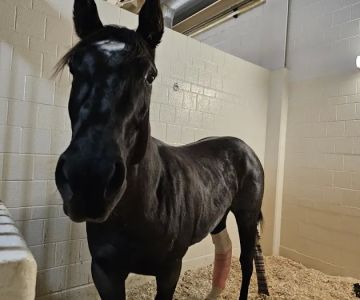 Cornell University Equine Hospital
Cornell University Equine Hospital
930 Campus Rd, Ithaca, NY 14850, USA
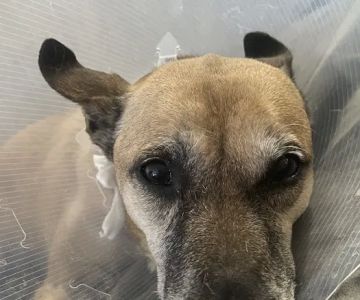 Cornell University Hospital for Animals
Cornell University Hospital for Animals
930 Campus Rd, Ithaca, NY 14853, USA
 Ithaca Veterinary Housecall
Ithaca Veterinary Housecall
102 Homestead Terrace, Ithaca, NY 14850, USA
 Janet L. Swanson Wildlife Hospital
Janet L. Swanson Wildlife Hospital
131 Swanson Dr, Ithaca, NY 14850, USA
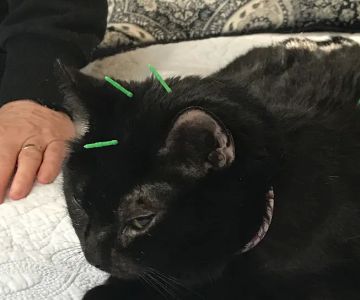 Bright Sky Veterinary Acupuncture
Bright Sky Veterinary Acupuncture
1225 Ellis Hollow Rd, Ithaca, NY 14850, USA
